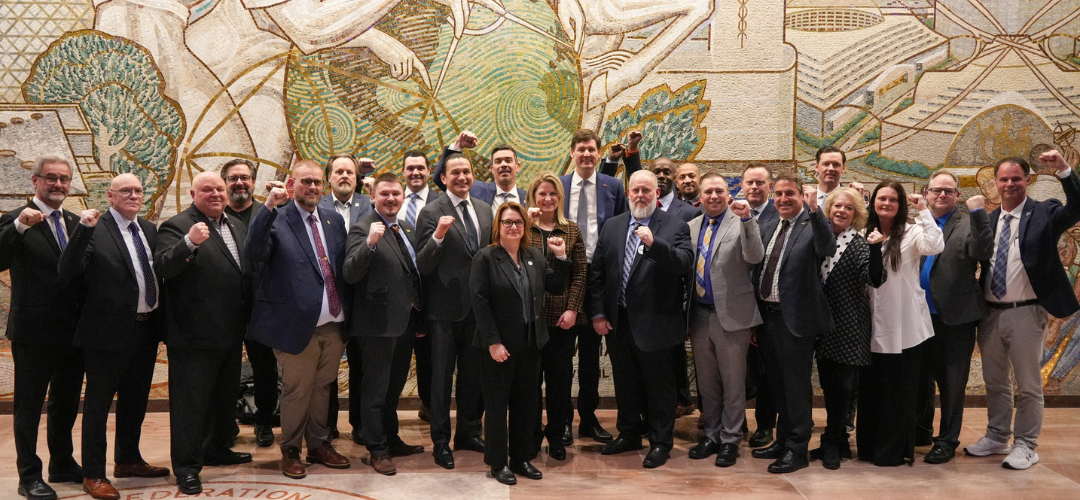Washington, D.C. – David Chartrand, General Vice-President (GVP) of the IAM Union in Canada, recently joined a roundtable discussion on tariffs at the Canadian-US American Federation of Labor and Congress of Industrial Organizations (AFL-CIO) meeting in Washington, D.C.
The gathering brought together Canadian Premiers, leaders from the Canadian Labour Congress (CLC), and labour representatives from both the U.S. and Canada to discuss the challenges and opportunities of tariffs and trade policies. Some of the key attendees included Bea Bruske, President of the CLC, P.J. Akeeagok, Premier of Nunavut, Wab Kinew, Premier of Manitoba, Liz Shuler, President of the AFL-CIO, and David Eby, Premier of British Columbia.
Held at the AFL-CIO headquarters, the meeting focused on protecting jobs on both sides of the border. It was made clear that international unions, which represent workers in both countries, are in a strong position to influence policies and must continue standing together in solidarity.
The AFL-CIO and CLC are committed to working in a coordinated effort and will continue collaborating on strategies to fight for workers’ rights and ensure their voices are heard in trade and tariff discussions. Both organizations recognize the power of unity in advocating for stronger protections for workers, pushing for policies that prioritize fair wages, safe working conditions, and job security.
Unions also discussed the impact of tariffs, noting that some workers are already losing jobs, and some employers fear tariffs could lead to closures and economic instability. However, the focus was on protecting workers, not politics. The Premiers also stressed their willingness to work with labour and anyone dedicated to protecting jobs and workers’ rights.
David Chartrand represented the IAM, along with Hassan Solomon, Political and Legislative Director, and Peter Greenberg, International Affairs Director at the IAM in the U.S. All three IAM representatives played key roles in advocating for policies that protect workers’ rights and promote sustainable economic growth for both nations.
The IAM’s commitment to worker-focused policies was a key point during the discussion, where leaders from both sides of the border expressed solidarity. The need for fair trade practices to protect jobs in important industries like manufacturing, aerospace, and automotive, while also safeguarding workers’ rights, was emphasized.
The meeting also tackled the issue of comments suggesting Canada could become the “51st state,” which was strongly rejected by all attendees, as such remarks are unwelcome.
In the end, the meeting emphasized that tariffs should be targeted at countries that are abusing trade practices. However, this is not the case with Canada, which remains committed to fair trade practices that support workers and communities.
As discussions continue, the IAM remains focused on advocating for long-term strategies that address current challenges while ensuring a fair and sustainable economic future.



